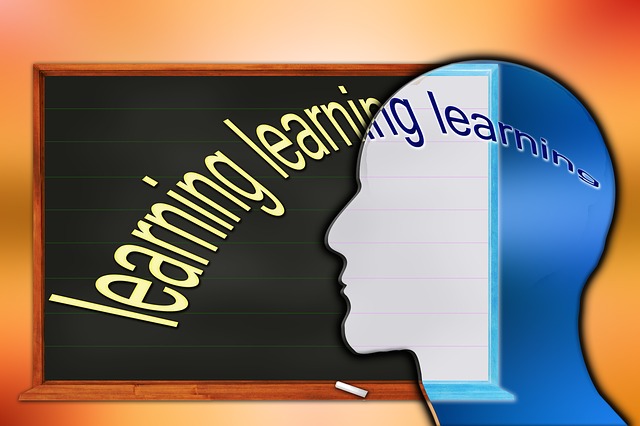Passive Voice

The verb tenses you’ve learned so far have all been in the active voice. In the active voice the subject does the verb. We usually don’t tell you this because in the beginning it’s not important. In the passive voice the subject does not do the verb. This is because the subject in the passive voice is the object in the active voice.
Examples:
The dog bit the boy. (active)
The boy was bitten by the dog. (passive)
A thief stole his motorcycle. (active)
His motorcycle was stolen by a thief. (passive)
The police arrested the thieves. (active)
The thieves were arrested by the police. (passive)
To form the passive, put the verb be in the same tense as the main verb in the active sentence, and then add the past participle of this main verb. The subject in the active sentence is put after the verb in a prepositional phrase starting with by. It is then called the agent.
Examples:
My friends and I finished the job in three days. (active)
The job was finished in three days by my friends and me. (agent = my friends and me)
Note: I changes to me because it is now an object, not a subject.
Most of the students passed the test. (active)
The test was passed by most of the students. (agent = most of the students)
His grandfather built a tree house in the back yard. (active)
A tree house was built in the back yard by his grandfather. (agent = his grandfather)
If there is a modal verb, then put be after the modal in the passive.
Examples:
The children must do all homework before bedtime. (active)
All homework must be done by the children before bedtime.
I couldn’t read his handwriting. (active)
His handwriting couldn’t be read by me.
He promised me that he would finish everything by Friday. (active)
He promised me that everything would be finished by Friday.
If there is no object in an active sentence, then the sentence cannot be made passive.
Examples:
We all went to the movies after dinner. (We went who / what? = no answer / no object)
After the movie, everyone was crying. (Everyone was crying who / what? = no answer / no object)
The agent in the passive voice can go after the verb or at the end of the sentence.
Examples:
Parents teach their children to be polite. (active)
Children are taught to be polite by their parents.
OR: Children are taught by their parents to be polite. (agent = their parents)
Her mother named her after her grandmother. (active)
She was named after her grandmother by her mother.
OR: She was named by her mother after her grandmother. [agent = her mother]
His parents gave him a laptop on his graduation from high school. (active)
He was given a laptop by his parents on his graduation from high school.
OR: He was given a laptop on his graduation from high school by his parents. [agent = his parents]
The agent is dropped in the passive voice for 3 reasons.
Reason 1:
When the subject is not important (it doesn’t add any real information), then you can drop it, especially when it’s they, people, someone or any other general subject.
Examples:
People call this river the Columbia River. (active)
This river is called the Columbia River. (passive) (by people is not important)
Someone lost this cell phone on the bus. (active)
This cell phone was lost on the bus. (passive) (by someone is not important)
They grow lots of rice in Asia. (active)
Lots of rice is grown in Asia. (passive) (by them is not important)
Reason 2:
When the subject is unknown. (no one knows)
Examples:
Someone stole my bike.
My bike was stolen. (by someone is unknown)
They broke the mirror in the move.
The mirror was broken in the move. (by them is unknown)
I know someone will buy that car today.
I know that car will be bought today. (by someone is unknown)
Reason 3:
When the subject is obvious (everyone knows who it is.)
Examples:
The teacher gave him a C on his composition.
He was given a C on his competition. (by teachers is obvious because only teachers mark compositions)
The police arrested him late yesterday afternoon.
He was arrested late yesterday afternoon. (by the police is obvious because only the police arrest people)
An artist painted a mural on the side of the building.
A mural was painted on the side of the building. (by an artist is obvious because only artists paint)
However, when the agent is important, such as a name, you must include it in the sentence.
Examples:
Alexander Graham Bell invented the telephone. (active)
The telephone was invented by Alexander Graham Bell.
Leonardo DaVinci painted the Mona Lisa. (active)
The Mona Lisa was painted by Leonardo DaVinci.
The Ford Motor Company produced the first Model T Ford in 1908. (active)
The first Model T Ford was produced in 1908 by the Ford Motor Company.
When there is both a direct object and an indirect object, either one can be the subject of the passive voice, but it is more common to use the indirect object.
Examples:
My parents gave me a bicycle for my birthday.
I was given a bicycle for my birthday. (commonly used)
A bicycle was given to me for my birthday. (not often used)
After the ballet, they presented her with a bouquet of flowers.
After the ballet, she was presented with a bouquet of flowers. (commonly used)
After the ballet, a bouquet of flowers was presented to her. (not often used)
They told him their secret.
He was told their secret. [commonly used]
Their secret was told to him. [not often used]
The verb get can also be used in place of be. Get is most often used:
When the result is negative.
Examples:
A fire destroyed the factory. (active)
The factory got destroyed in a fire. (destroyed is a negative result)
OR: The factory was destroyed in a fire.
Her boss fired her for her sloppy and incomplete work. (active)
She got fired for her sloppy and incomplete work. (sloppy and incomplete are negative)
OR: She was fired for her sloppy and incomplete work.
If he tells the truth, his parents won’t punish him. (active)
If he tells the truth, he won’t get punished. (punished is negative)
OR: If he tells the truth, he won’t be punished.
When the result happened because of some action that was done.
Examples:
They finally painted the porch. (active)
The porch finally got painted. (action = painting)
OR: The porch was finally painted.
The Canadian people elected Pierre Trudeau Prime Minister in 1968. (active)
Pierre Trudeau got elected Prime Minister in 1968. (action = running for election)
OR: Pierre Trudeau was elected Prime Minister in 1968.
Did the company reimburse you for the meal yesterday? (active)
Did you get reimbursed for the meal yesterday? (action = asking the company)
OR: Were you reimbursed for the meal yesterday?
Your Score:
Your Ranking:
© 2013 Ambien Malecot








